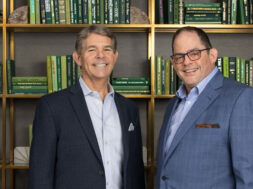Faced with Uncertainty, Family Offices Take the Long View
Family offices are often spared the immediate impact of economic tumult, and early data suggests that this crisis will be no different.

This story originally appeared in the September/October 2020 print edition of Middle Market Growth magazine. Read the full issue in the archive.
The first half of the year was a rough one for the global economy. As the coronavirus spread and lockdowns took hold, understanding what the emergency response means for daily life and global business has been a study in adaptation.
Yet at least one type of investor—family offices that make direct investments into operating companies—is often spared the immediate impact of economic tumult. Investment cycles are longer and dealmaking decisions are largely decoupled from macroeconomic trends and concerns. Early data suggests that this crisis will be no different, even if investment teams have to manage much of the origination and diligence process remotely.
Facetime Takes on New Meaning
Many investors are continuing to deploy capital, despite uncertainty caused by COVID-19, according to a survey of institutional limited partners and family offices from Campbell Lutyens, an independent private equity advisory firm. But there are some caveats.
“We decided to do a video to explain who we are. The video helps folks understand what we do. We have a 60,000-square-foot facility and over 1,300 patents and it can be difficult to explain that all over a zoom call.”
Katherine Hill Ritchie
Director, Nottingham Spirk
Many of the M&A deals completed by family office investors in the first half of this year were already in the pipeline prior to the start of the coronavirus outbreak. During the first quarter, there was a widespread pause on M&A activity. Investors wanted to ensure they had sufficient liquidity, and to better understand the potential impact of the pandemic. By the second quarter, investment activity had largely rebounded across the board.
Some of the early dealmaking hurdles have persisted. For example, building new relationships can be challenging without the ability to travel or meet face to face. Just under half (46%) of the respondents in the Campbell Lutyens survey said they wouldn’t consider a new relationship without an in-person visit—a tall order during a pandemic that is likely to extend well into 2021. For investors who are willing to press on, creativity is key.
“We decided to do a video to explain who we are,” says Katherine Hill Ritchie, director at Nottingham Spirk, a family office and product design and engineering firm that focuses on consumer products, medical devices, industrial businesses and military technology. “The video helps folks understand what we do. We have a 60,000-square-foot facility and over 1,300 patents and it can be difficult to explain that all over a Zoom call.”
But when it comes to due diligence, a video is unlikely to assuage most investor concerns. “The on-site visit is important,” Ritchie says. “If only so you can know at a base level that the building is there. But you also want to see who is in the business, what it looks like during the workday.”

A FaceTime-based initial walkthrough is one low-cost workaround. A high-tech approach might involve using drones or viewing security camera footage.
In most cases, an in-person meeting will still need to take place at some point in the process, in order for the family office buyer to feel comfortable enough to close. “If we’re investing millions of dollars into a management team and their business, we’re not going to do that without meeting them in person,” says Dan Patterson, founder and chairman of Patterson Thoma, a family office based in Dallas.
A Delicate Balance
Despite some changes to the due diligence process, family offices are generally well-positioned to invest right now. They aren’t locked in to a fixed timetable for making investments and selling their holdings, so the pause in new transactions at the beginning of the year didn’t necessarily hurt them. And if it takes longer to exit or do new deals, a family office can usually wait that out. “It’s a delicate balance,” Patterson says. “We wanted to get our bearings and we took time to do that at the beginning of this year. But you also want to stay in the mix so that you aren’t missing out on new opportunities.”
Andrew Glaze, founder and chief investment officer at Shiro Capital, says the deal environment remains competitive, despite uncertainty about the broader economy. His Los Angeles-based family office makes minority and control investments in middle-market businesses.
“We’re looking at the smaller end of the market, and it’s still really crowded,” he says. “We might look at a deal once and by the time we come back, it’s already under a letter of intent. Or we’ll look at a deal and there are already two or three other families interested in it.”
“Before we invest, we spend a lot of time thinking about potential downsides. If I look at our portfolio companies today, they’ve performed well despite some really surprising circumstances.”
Beth Rahn
Principal and Head of Family Capital, McNally Capital
The competitive deal environment isn’t new. It has been a common feature of family office and private equity investing for a few years now. And as the number of funds and families investing in the middle market has gone up, so have valuations.
Families we spoke to for this story noted that prices haven’t fallen much in the private markets, despite volatility in the public markets. “If it’s a deep recession, you’re likely to see more movement in valuations,” Patterson says. “But I think it’s hard to look at a company that was performing really well before COVID and just assume it’s all over now. Especially if that company isn’t operating in an industry like airlines or cruises. And even those companies might come back if you’re willing to wait it out.”
Covid-Adjusted EBITDA
Family offices tend to focus on risk when evaluating prospective investments, a quality that could help them weather a global pandemic.
“Before we invest, we spend a lot of time thinking about potential downsides. If I look at our portfolio companies today, they’ve performed well despite some really surprising circumstances,” says Beth Rahn, principal and head of family capital at McNally Capital, the investment arm for the family behind Rand McNally & Company.

Rahn points to cleaning and floor care companies in her firm’s portfolio that have done well during the crisis, as businesses sought out sanitation services. “Before the pandemic, these were just steady, solid businesses,” she says. “Obviously, no one could have predicted a need like this, but they have performed well and we expect that to continue as more parts of the economy open up.”
As family offices pursue new investment opportunities, they’ll have to contend with today’s unpredictable environment and factor it into their risk assessment. Michael Schwamm, a partner at law firm Duane Morris in the firm’s M&A practice, notes that investors and businesses are trying to look at the big picture when it comes to potential performance. “The issue is, you’re either going to have a performance lag and a catch-up, or you’ll have outperformance now and then maybe a lag when other businesses come back online,” he explains.
A company that closed temporarily or strictly limited its operations in the early months of the outbreak will likely have two-quarters of severely disrupted cash flow. Once that business reopens and resumes normal operations, it’s unlikely to bounce back instantly, and its financials will reflect that delayed rebound. Conversely, companies that excelled because of the pandemic, such as professional sanitization services or webinar platforms, could end up having a record-breaking 2020. But that won’t last forever. Eventually, their performance will return to more normal levels, once people are allowed to meet up in person, or businesses create more efficient in-house cleaning protocols.
Scenarios like these require investors to evaluate businesses in a new way.
“Call it COVID-adjusted EBITDA,” Schwamm says. “How do you factor in potentially 12-24 months of anomalous behavior? Investors are choosing to bring in more factors to analyze a given transaction because the immediate performance is unreliable.”
Meanwhile, entrepreneurs and owners looking to sell their businesses may have to adjust their expectations about price and extend their timelines. “I would expect that you’re going to see a larger portion of the purchase price being paid in earn-outs or rollover equity because the valuations are going to be based more on future results,” Schwamm says.
“I think we’re going to bounce back quickly, especially if we get a vaccine by the end of the year or sooner.”
Andrew Glaze
Founder and Chief Investment Officer, Shiro Capital
That could give family offices an advantage over competitors as they look for middle-market investment opportunities. Unlike traditional private equity firms, families aren’t governed by the terms of a commingled fund. They can afford to be more flexible about when they invest, what they invest in and when they exit. That flexibility can also translate into attractive deal terms for owners and entrepreneurs. Minority investments are an option with family offices, too, which could benefit companies that are looking for capital but aren’t interested in transferring full ownership.
That is not to say that the flexibility afforded by family offices comes at no cost. Families generally are able to extend their holding periods, but they’re going to expect to be paid for that additional time. “You have to assess where you think the compounding growth is going to be over the next two to three years,” Rahn says. “It’s fair to say that a company that is being sold now needs to have a fairly unique story.”
She expects family offices to place greater scrutiny on the capital structure in the future. “We typically look for companies that are low leverage to begin with,” she says. “But I think people are going to look closer at covenants and they’re going to want finance partners that are well prepared for any eventualities.”
The insurance industry, which typically moves slowly, is also likely to adjust in response to COVID. Insofar as businesses were covered in the event of a big material change like the pandemic, it will no doubt be harder to buy the same type of coverage in the future. The cost of insurance policies is likely to go up as well.
WHAT IS NORMAL ANYWAY?

The families we spoke to were somewhat divided on what the future holds for investing and the economy. “I think we just don’t know,” says Nottingham Spirk’s Ritchie. “You have to think through new layers of risk in terms of supply chains, real estate, employee health. Some businesses are going to do fine. Others aren’t going to make it. But I don’t think anyone knows where it ends up in terms of what everything looks like when we level off.”
Others were more optimistic. Although they no longer expect the V-shaped recovery many hoped for at the start of the pandemic, something resembling more of a Nike “swoosh” is possible, with growth accelerating as COVID- 19 treatments become available. “I think we’re going to bounce back quickly, especially if we get a vaccine by the end of the year or sooner,” says Shiro’s Glaze.
The new normal for family offices’ direct investment strategies is likely to reflect adjusted individual risk tolerance. New indicators of risk will make their way into models, deal terms may tighten slightly, and video conferencing will replace the boardroom.
Overall, the model of family office direct investing remains the same. Families are still on the hunt for high-growth businesses that continue to come to market—even in a pandemic.
Bailey McCann is a business writer and author based in New York.


